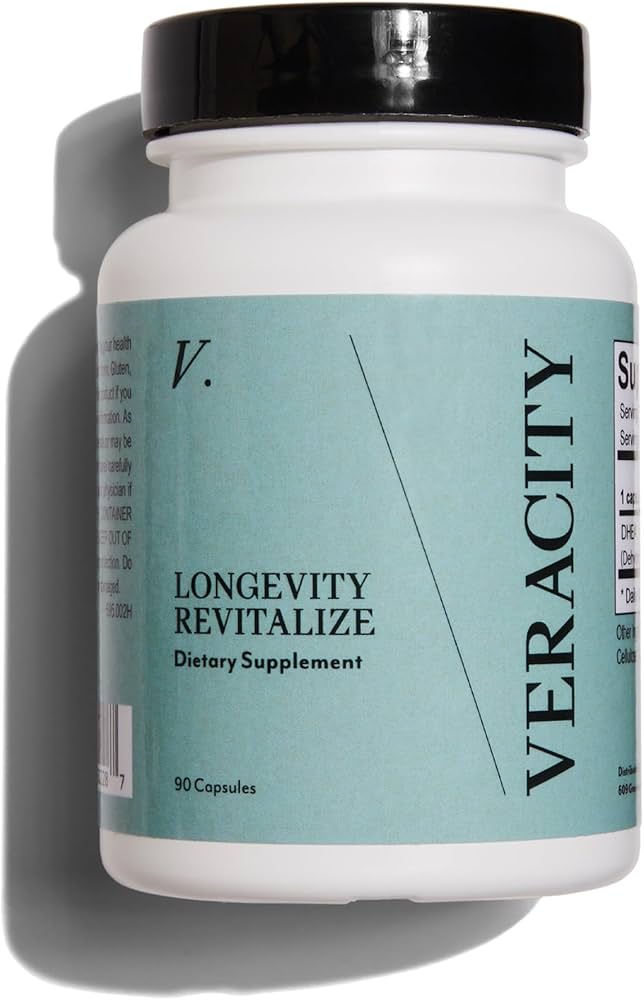9 Best Supplements for Perimenopause: Boost Energy, Mood, and Hormonal Balance
Navigating perimenopause can feel like a rollercoaster of symptoms and emotions. From hot flashes to mood swings, you might find yourself searching for effective ways to manage this transitional phase. Thankfully, the right supplements can make a world of difference in easing these symptoms and improving your overall well-being.
Vitamin D: Essential for Bone Health
Navigating perimenopause can be tough, especially when it comes to maintaining bone health. Vitamin D plays a crucial role in ensuring your bones stay strong during this transitional phase.
Benefits of Vitamin D in Perimenopause
Bolsters Bone Density: Vitamin D helps your body absorb calcium, which is vital for maintaining strong bones and preventing osteoporosis. Women during perimenopause are at a higher risk for bone density loss, making this vitamin particularly important.
Enhances Mood: Vitamin D has been shown to support mood regulation. Low levels of this vitamin can contribute to mood swings and depression, common symptoms during perimenopause.
Supports Immune Function: Keeping your immune system robust is crucial, and vitamin D can help. It strengthens your immune response, protecting you from various infections and illnesses.
Recommended Dosage and Sources
Ideal Dosage: Adults typically need about 600-800 IU of vitamin D daily, though women over 50 may require more. Consult with your healthcare provider to determine your specific needs.
Natural Sources: You can get vitamin D from sunlight exposure—spend 10-30 minutes in the sun several times a week. Dietary sources include fatty fish like salmon and mackerel, dairy products, and fortified foods like cereals and orange juice.
Supplementation: If you’re not getting enough vitamin D from diet and sunlight, consider supplements. Vitamin D3 is the preferred form, as it’s more effective at raising your body’s vitamin D levels.
Maintaining optimal vitamin D levels can make a significant difference in your perimenopause experience, helping you stay strong and healthy.
Omega-3 Fatty Acids: Supporting Heart and Mind
Omega-3 fatty acids play a crucial role in supporting your cardiovascular health and cognitive function, especially during perimenopause.
Advantages of Omega-3s for Emotional Well-being
Reduce Inflammation: Omega-3s help reduce inflammation, which can positively impact your mood and mental health during perimenopause.
Enhance Mood: Studies show that omega-3 fatty acids can enhance mood and reduce symptoms of depression and anxiety, common issues during this stage.
Boost Cognitive Function: Regular intake of omega-3s supports cognitive function, helping to mitigate memory lapses and brain fog often associated with perimenopause.
Omega-3 Sources and Dosage Suggestions
Consume Fatty Fish: Incorporate fatty fish like salmon, mackerel, and sardines into your diet to boost omega-3 intake.
Consider Supplements: If you don’t eat fish, consider high-quality fish oil supplements for omega-3 fatty acids.
Aim for 1-3 Grams Daily: Target a daily intake of 1-3 grams of omega-3s from combined sources, depending on your health needs and as recommended by your healthcare provider.
Supporting Heart Health
Lower Triglycerides: Consuming omega-3s can help lower triglyceride levels, reducing your risk of heart disease, which can be a concern during perimenopause.
Improve Blood Pressure: Omega-3s are known to help improve blood pressure levels, contributing to better cardiovascular health.
Support Arterial Function: These fatty acids support arterial function, ensuring smooth blood flow and reducing the likelihood of heart complications.
By integrating omega-3 fatty acids into your daily routine, you support both your heart and mind as you navigate the challenges of perimenopause.
Probiotics: Aiding Digestive Balance
Probiotics play a crucial role in maintaining gut health, especially during perimenopause.
How Probiotics Support Gut Health
Probiotics restore balance in your gut microbiome. They introduce beneficial bacteria that help manage digestive issues. Research shows that probiotics can ease symptoms like bloating, constipation, and diarrhea. These benefits are particularly vital during perimenopause when hormonal changes can disrupt gut health. Consuming probiotics can also enhance nutrient absorption, crucial for maintaining overall health as your body transitions.
Choosing the Right Probiotics
Choosing the right probiotics is essential for maximum benefits. Look for supplements containing multiple strains like Lactobacillus and Bifidobacterium. These strains have been proven to improve digestive health and boost immune function. Aim for a high CFU (colony-forming units) count, ideally in the billions. You can also incorporate probiotic-rich foods into your diet, like yogurt, kefir, sauerkraut, and kimchi, to naturally support your gut health.
Magnesium: Alleviating Perimenopause Symptoms
Magnesium plays a vital role in alleviating perimenopause symptoms. It supports numerous bodily functions, helping to reduce issues commonly faced during this transitional phase.
Magnesium’s Role in Reducing Anxiety and Fatigue
Magnesium helps lower anxiety and combat fatigue. It regulates neurotransmitters linked to relaxation and calmness, such as serotonin. By stabilizing these chemicals, it reduces anxiety and stress levels. Additionally, magnesium supports energy production, preventing the fatigue that often accompanies perimenopause. Including this mineral in your regimen can improve mood and overall energy.
Best Sources of Magnesium
Dietary sources of magnesium are plentiful. Foods rich in magnesium include leafy greens, like spinach and kale, nuts and seeds, such as almonds and chia seeds, and whole grains, like brown rice and quinoa. You can also get magnesium from legumes, like black beans, and dairy products, such as yogurt. If dietary intake isn’t sufficient, consider magnesium supplements, ensuring you choose a form that’s easily absorbed, like magnesium glycinate or citrate. Aim for the recommended daily intake of 310-320 mg for women.
Calcium: Key to Preventing Osteoporosis
Calcium’s Importance for Bone Density
Calcium is essential for maintaining bone density, especially during perimenopause. Your body naturally loses bone mass as you age, and calcium helps counteract this loss. Women over 50 should aim for 1,200 mg of calcium daily to support bone health. Good sources include dairy products, leafy greens, and fortified foods. Without sufficient calcium, you’re at a higher risk for osteoporosis, a condition that makes bones brittle and fragile.
How to Incorporate Adequate Calcium
Incorporate adequate calcium through a balanced diet and supplements if necessary. Consume dairy products like milk, cheese, and yogurt as they’re high in calcium. Include green vegetables like kale and broccoli in your meals. Opt for calcium-fortified foods such as cereals and orange juice. If dietary sources aren’t enough, calcium supplements can help you meet your daily needs. Always consult your healthcare provider about the right supplement dosage for you.
Vitamin B Complex: Essential for Energy and Mood
Vitamin B complex can be a powerhouse during perimenopause. It supports your energy levels and mood, helping you navigate this transitional phase.
Benefits of Vitamin B during Perimenopause
Boosts Energy Levels: Perimenopause can leave you feeling drained. B vitamins like B12 and B6 help convert food into energy, combating fatigue.
Supports Mood Stability: Mood swings are common during perimenopause. B6 aids in serotonin production, while B9 (folate) helps regulate mood and cognitive function (source: National Institutes of Health).
Promotes Heart Health: B vitamins, especially B9, B12, and B6, help reduce homocysteine levels, a risk factor for heart disease.
Aids in Nervous System Health: These vitamins support nervous system function, which can be essential when dealing with symptoms like brain fog and mild memory loss.
Identifying High-Quality B Complex Supplements
Check for Full Spectrum: Ensure the supplement includes all eight B vitamins: B1, B2, B3, B5, B6, B7, B9, and B12.
Look for Activated Forms: Active forms, like methylcobalamin for B12 and methylfolate for B9, are more easily absorbed by your body.
Consider Dosage and Bioavailability: Opt for supplements that provide 100% of the daily value (DV) for each vitamin. Higher bioavailability means your body can use the vitamins more effectively.
Research Third-Party Testing: Quality supplements are often tested by third-party organizations like NSF International or USP. These certifications ensure that the product meets high standards of quality and purity.
Black Cohosh: Natural Remedy for Hot Flashes
Exploring Black Cohosh Effectiveness
Used for centuries in traditional medicine, black cohosh has gained popularity for easing hot flashes. Studies show it may help reduce the frequency and severity of these symptoms. While the exact mechanism isn’t clear, researchers believe black cohosh influences serotonin receptors, which are linked to temperature regulation. Many women report relief within weeks of starting supplementation.
Safe Usage of Black Cohosh
Consult a healthcare provider before starting black cohosh, especially if you have liver issues or take medications. Typical dosages range from 20 to 80 mg daily, but it’s essential to follow product guidelines or professional advice. Watch for side effects like gastrointestinal discomfort or headaches, and discontinue use if they occur. Ensuring high-quality supplements by choosing reputable brands can also minimize risks.
Ashwagandha: Stress Relief and Hormonal Balance
The Benefits of Ashwagandha in Perimenopause
Ashwagandha, an adaptogenic herb, helps manage stress and anxiety by lowering cortisol levels. Research suggests it supports hormonal balance, reducing symptoms like mood swings and irritability. Studies show it can improve sleep quality, essential during perimenopause. It also boosts energy and helps combat fatigue, common during hormonal changes. Its anti-inflammatory properties may aid in reducing joint pain and stiffness experienced during perimenopause.
Guidelines for Ashwagandha Intake
Experts recommend taking ashwagandha in doses of 300-500 mg twice daily. It’s best to start with lower doses and gradually increase, especially if you’re new to the supplement. Always choose high-quality ashwagandha from reputable brands to ensure purity and efficacy. It’s advisable to consult your healthcare provider before starting ashwagandha, particularly if you’re on medication or have underlying health conditions. Avoid taking it on an empty stomach to prevent gastrointestinal discomfort.
Red Clover: Reducing Menopausal Symptoms
Known for its medicinal properties, Red Clover is a popular supplement for women experiencing perimenopause. This herb helps alleviate various menopausal symptoms effectively.
How Red Clover Can Help
Red Clover contains isoflavones, which mimic estrogen in the body. These compounds help reduce hot flashes, night sweats, and mood swings by balancing hormone levels. According to a study in the “Journal of Obstetrics and Gynaecology,” women taking Red Clover reported reduced severity and frequency of hot flashes. Additionally, its anti-inflammatory properties may improve cardiovascular health and bone density, crucial during perimenopause.
Recommended Red Clover Usage
Start with a dosage of 40-80 mg of isoflavones derived from Red Clover extract per day. You can find Red Clover in capsules, teas, and tinctures. Ensure you buy supplements from reputable brands to guarantee quality and efficacy. It’s vital to consult your healthcare provider before starting Red Clover, especially if you’re on other medications or have health conditions. Monitoring for any side effects like headaches or nausea can also help you use this supplement safely.
Conclusion: Integrating Supplements Into Your Routine
Navigating perimenopause can be challenging, but the right supplements can offer significant relief. By incorporating essential nutrients like Vitamin D, Omega-3 fatty acids, and probiotics, you can support your overall health during this transition.
Consider adding Black Cohosh and Ashwagandha to manage specific symptoms like hot flashes and stress. Red Clover is another excellent option for balancing hormone levels and alleviating common discomforts.
Always consult your healthcare provider before starting any new supplement regimen to ensure it’s safe and effective for you. With the right approach, you can make perimenopause a more manageable and comfortable experience.






